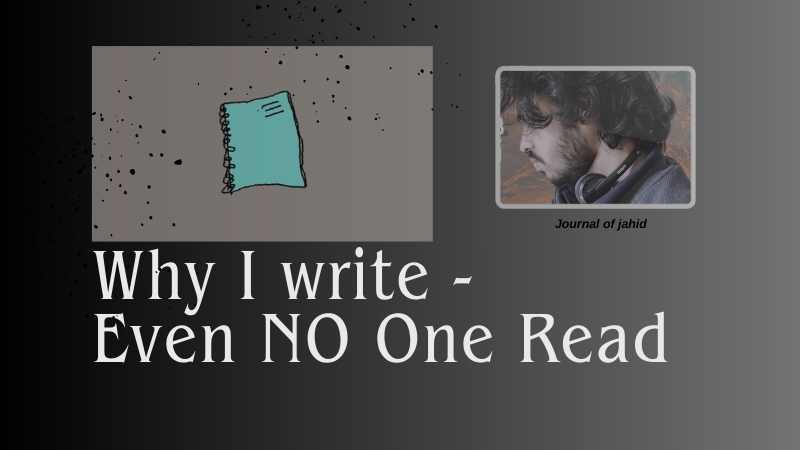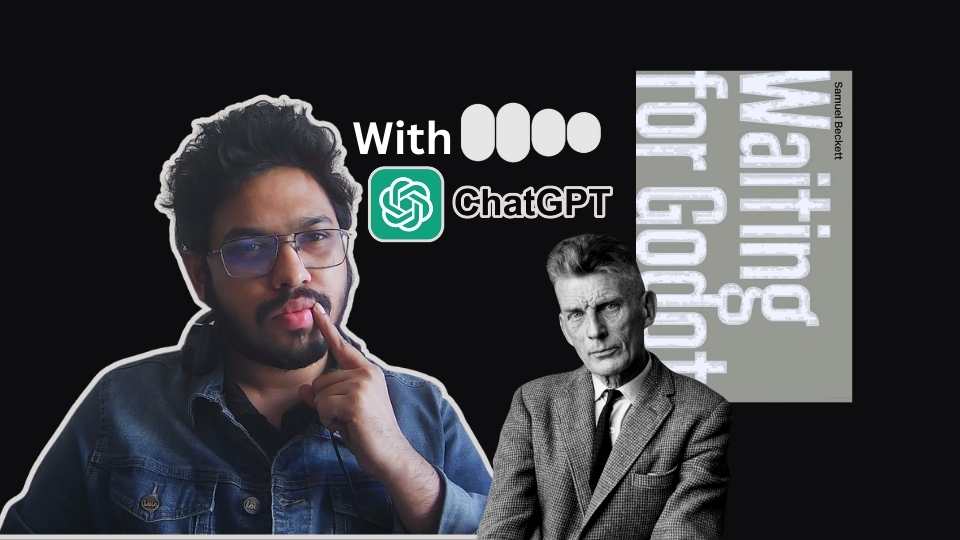Why I Write Publicly (Even When No One Reads It)

On Quiet Creativity, Digital Ghost Towns, and the Joy of Showing Up
There’s a particular kind of silence that follows after you hit “publish” on a blog post that no one reads. It’s not the silence of failure, though it’s easy to mistake it for that. It’s the silence of a question hanging in the air: Why keep writing if no one’s listening?
I’ve asked myself this more times than I can count.
For years, I treated writing like a transaction. Words in, validation out. Likes, shares, comments—the metrics we’re told to worship. But somewhere along the way, I realized something radical: Writing for an audience of none might be the most honest thing I’ve ever done.
Here’s why.
1. Writing as a Mirror
The act of writing forces me to confront my own thoughts, unfiltered. When I write publicly—even if no one reads it—I’m forced to polish rough ideas into coherent sentences. It’s like holding up a mirror to my mind.
Paul Jarvis once wrote, “Creating in public isn’t about the audience. It’s about the creator.” I’ve found this to be painfully true. The posts that languish in obscurity often teach me more than the ones that go viral. They’re raw, unpolished, and unapologetically mine.

2. The Myth of Audience Validation
We’re conditioned to believe that art needs applause to matter. But what if the value is in the making, not the reception?
I once spent weeks drafting an essay about my relationship with social media. It got 12 views. For days, I felt foolish. Then I reread it and realized: That essay changed me. It clarified my values, exposed my contradictions, and became a compass for how I wanted to live.
As Joanna Wiebe of Copyhackers says, “Write to the person you needed five years ago.” Sometimes, that person is you.

3. Building a Time Capsule
My blog is a record of who I was at different points in my life. The posts that nobody read in 2020 are now my most cherished. They’re snapshots of growth—proof that I showed up, even when it felt pointless.
Think of your blog as a letter to your future self. Ten years from now, you won’t care about pageviews. You’ll care that you had the courage to say, “This is what I thought. This is who I was.”
4. The Quiet Rebellion Against Algorithms
In a world ruled by SEO, clickbait, and viral hooks, writing without an audience is a quiet act of defiance. It’s a refusal to let algorithms dictate what’s worth saying.
I’ve published poems, half-baked theories, and rants about the beauty of snail mail. None of these “perform well.” But they remind me that creativity isn’t a commodity. It’s a birthright.

5. The 1% Who Might Need It
Here’s a secret: Someone always finds it.
Last year, a stranger emailed me about a post I’d forgotten I’d written. It was a rambling reflection on grief, buried in my archives. They wrote: “This felt like you wrote it just for me.”
That’s the magic of public writing. You never know who’s wandering the digital wilderness, hungry for the exact words you left behind.

6. The Discipline of Showing Up
Writing without reward is a masterclass in commitment. It’s showing up even when the world doesn’t clap.
This discipline bleeds into everything else. If I can write when no one reads, I can work when no one notices. I can create when no one cares. That’s where resilience is born.
Practical Takeaways for the “Unread” Writer
- Embrace the process: Treat your blog as a playground, not a stage.
- Kill the stats tab: Uninstall Google Analytics for a month. Write freely.
- Write letters, not headlines: Imagine you’re speaking to one person.
- Celebrate consistency: Track streaks, not traffic.
A Question to Leave You With
What would you write about if you knew no one would ever read it?
Start there.
Why I Write Publicly (Even When No One Reads It)https://t.co/8UqaYDxRLZ pic.twitter.com/lEyMlSj6ES
— Jahid Onik ( Journal Of Jahid) (@JahidOnik1) March 16, 2025


